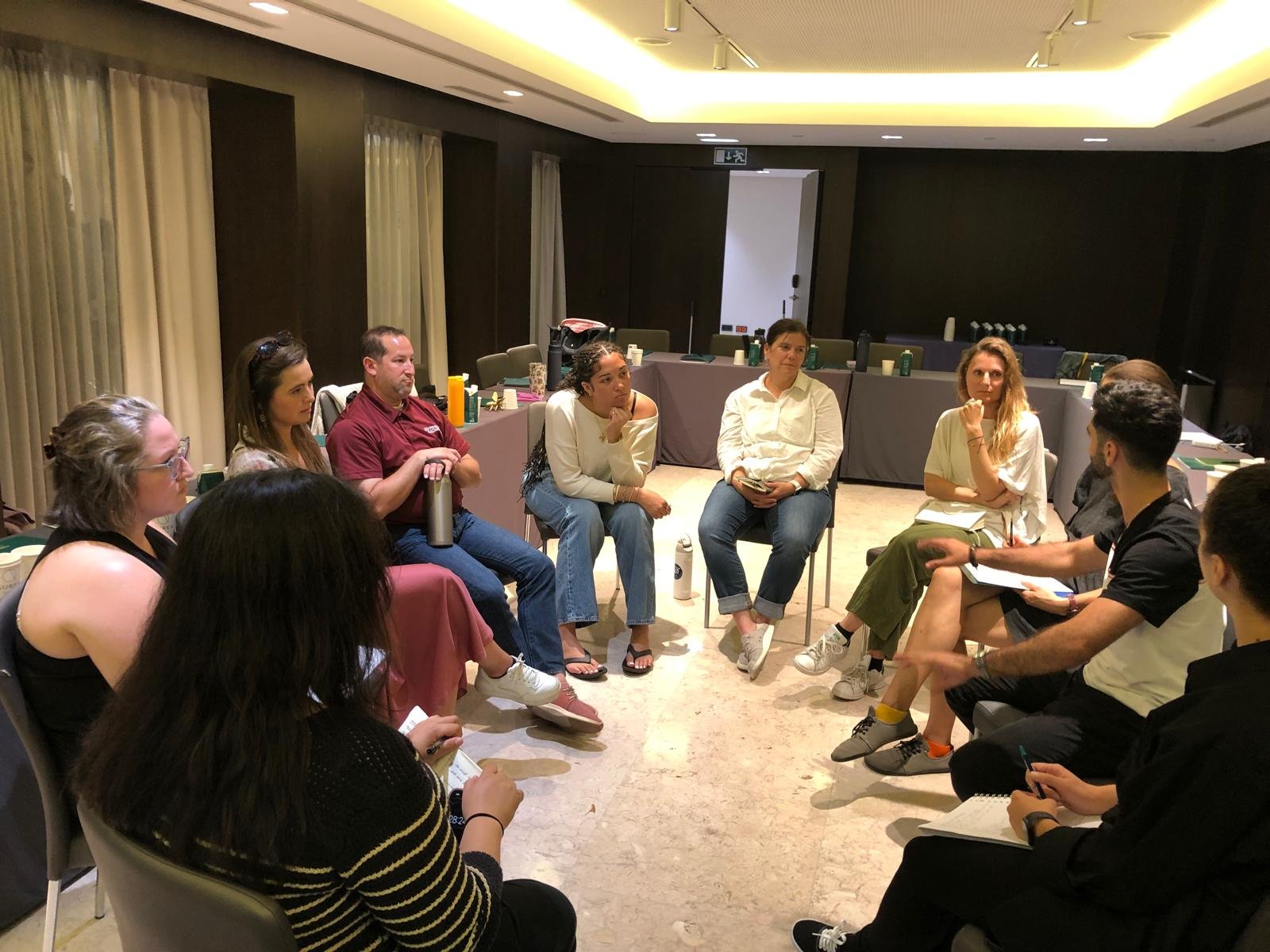
TIPS ON HOW TO ENGAGE IN CHALLENGING CONVERSATIONS
1. BRING FOCUS TO ACTIVE LISTENING
Listen with non-judgment, curiosity and the intention to understand what and why was said. Pay attention to your feelings and others’ emotions and think of their potential cause. Ask questions to understand better and be self-aware.
2. EXPLORE THE UNDERLYING DRIVERS BEHIND THE WORDS
Reflect on your biases, assumptions, values, beliefs, and what personal experiences have shaped your or others’ vision of the topic. Ask good critical-thinking questions to dive beneath surface-level positions and reach the depth of perspectives.
3. BE AWARE OF YOUR TRIGGERS
What makes the conversation challenging? What happens to your emotions, thought process and what is your typical reaction to specific triggers? Being aware of personal triggers, the ways to deal with them and your comfort level with conflict could help you prepare for challenging discussions in advance.
4. CULTIVATE EMPATHY
Try to ‘take on the perspective’ of another person to see the world through their lens, turn your judgment into genuine curiosity about a personal context and why others’ ideas are different from yours.
5. ADAPT HOW YOU COMMUNICATE
Think about what, how and when it is better to say something. Choose your words carefully and when clarifying someone’s unique definition, use their exact wording to avoid misunderstandings and remain respectful even in disagreement.
6. EMBRACE DIVERSITY AND COLLABORATE
Cultivate an attitude of transforming challenging conversations into opportunities for collaboration and collective learning by enhancing self-awareness, practicing empathy, and fostering honest, respectful communication.







